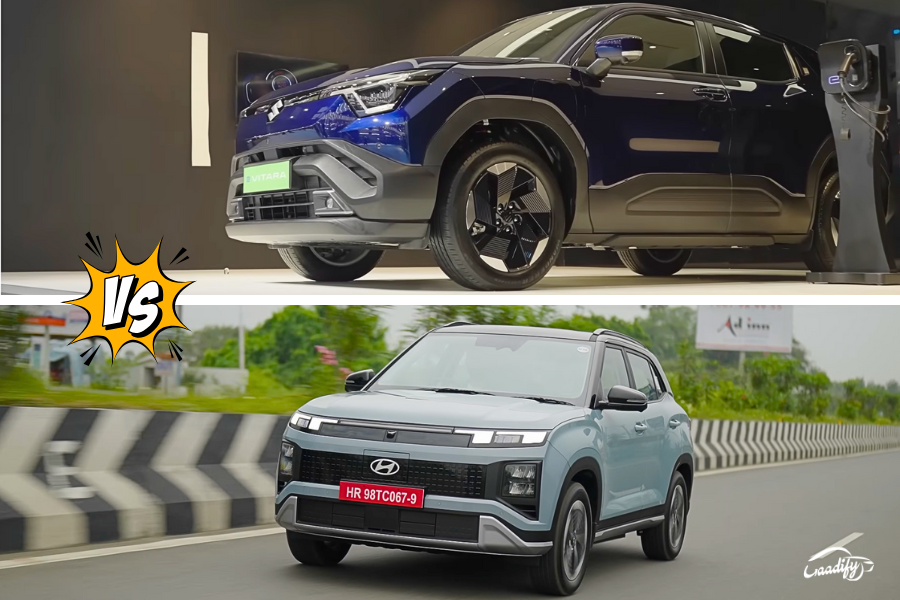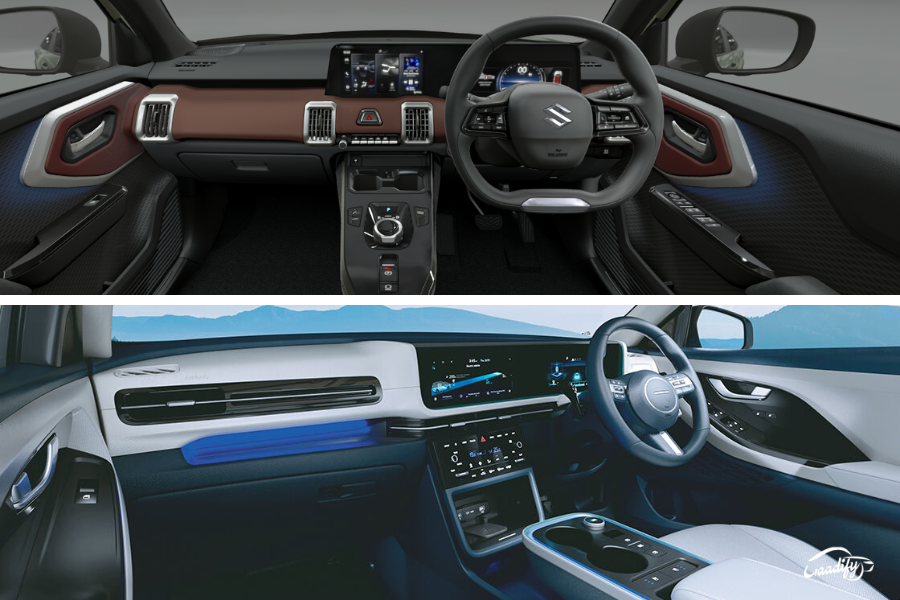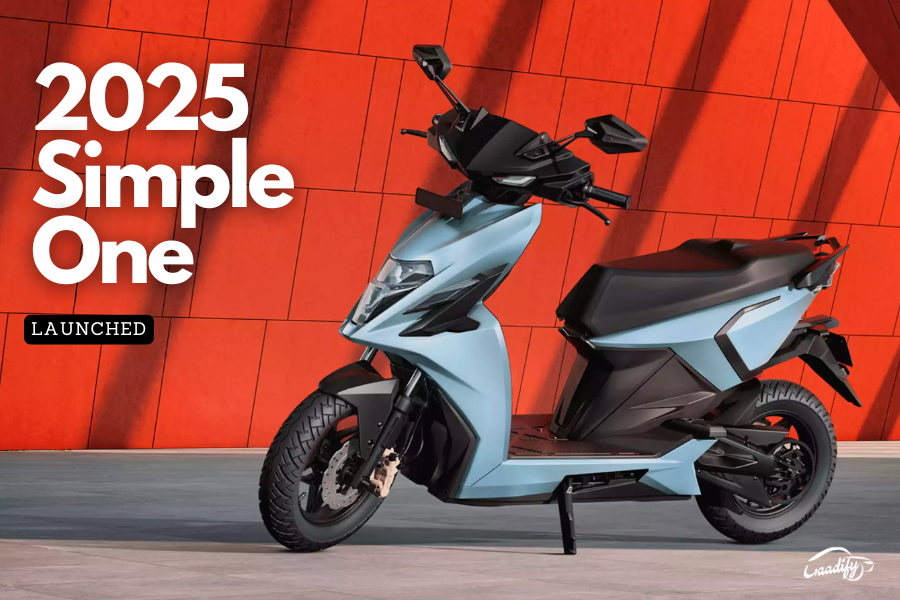At the Auto Expo 2025, Maruti Suzuki unveiled the eVitara SUV, while the Hyundai announced prices of the Creta Electric. While Maruti is yet to reveal the prices of its debut electric offering, its specifications and key features have already been revealed. So let’s examine how these EVs stack up against each other: –
Maruti eVitara vs Hyundai Creta Electric: Dimensions
| Parameters | Maruti eVitara | Hyundai Creta Electric |
| Length | 4275 mm | 4340 mm |
| Width | 1800 mm | 1790 mm |
| Height | 1635 mm | 1655 mm |
| Wheelbase | 2700 mm | 2610 mm |
| Ground Clearance | 180 mm | 200 mm |
| Boot Space | – | 433 litres |
Maruti eVitara vs Hyundai Creta Electric: Dimensions
The Hyundai Creta Electric has a longer length and slightly more height, which could contribute to a more comfortable cabin, mainly for taller passengers. However, the eVitara has a longer wheelbase, indicating that rear seat passengers may benefit from better legroom and overall cabin space.

Worth Reading: Hyundai Creta Electric: Finding The Most Value-for-money Variant
Maruti eVitara vs Hyundai Creta Electric: Specifications
| Specifications | Maruti e Vitara | Hyundai Creta Electric | ||
| Battery Pack | 49 kWh | 61 kWh | 42 kWh | 51.4 kWh |
| Max Power | 144 PS | 174 PS | 135 PS | 171 PS |
| Peak Torque | 192.5 Nm | 192.5 Nm | 200 Nm | 200 Nm |
| Claimed Range | – | Over 500 km | 390 km | 473 km |
| Drivetrain | FWD | FWD | FWD | FWD |
| Charging Time (10-80% via 50kW DC charger) | – | – | 58 mins | |
Both the eVitara and Creta Electric are available with two battery pack options. However, the eVitara gets bigger battery packs and more powerful motors. Nevertheless, the Creta Electric produces more torque.
Worth Reading: Hyundai Creta Electric: Finding The Most Value-for-money Variant

Maruti eVitara vs Hyundai Creta Electric: Key Features
| Common | Additional Features in eVitara Over Creta Electric | Additional Features in Creta Electric over eVitara |
| – Automatic LED headlamps – Alloy wheels – LED lighting – Connected display setup – 10.25-inch infotainment – Digital driver’s display – Apple Carplay and Android Auto – Connected car tech – Ventilated front seats – Wireless charger – Multi-colour ambient lighting – type-C ports – Powered driver seat – Rear AC vents – Premium sound system (branded) – Recline function for rear seats – Tyre pressure monitoring system – Hill assist – ISOFIX anchors – Electronic parking brakes with auto-hold – Electronics stability control – Front & rear parking sensors – 360-degree camera – Front, side and curtain airbags (6 airbags) – Level-2 ADAS | – Bigger 18-inch alloys (Creta gets 17-inch units) – Wireless integration for Apple Carplay and Android Auto – 40:20:40 split function for rear seat – Sliding function for rear seats – Fixed glass roof – Driver-side knee airbag (total 7 airbags) | – Dual-zone AC – 8-way electrically adjustable co-driver’s seat with boss mode function – Panoramic sunroof – Vehicle-to-load (V2L) – Digital key support – Memory function for driver seat – ADAS-linked regen |
Both the Creta Electric and eVitara are well-equipped in terms of safety, comfort and convenience. However, Creta Electric emphasises more on luxury and practicality that will enhance your overall cabin experience.
Maruti eVitara vs Hyundai Creta Electric: Price
| Hyundai Creta Electric | Rs 17.99 lakh and RS 23.50 lakh |
| Maruti eVitara | Yet-to-be-revealed |

Conclusion
Both the Hyundai Creta Electric and Maruti eVitara are strong contenders in the electric SUV market. While the Creta Electric focuses more on comfort & performance, the eVitara stands out with its larger battery pack and more range. Ultimately, the choice between the two will depend on individual preferences for features like range, luxury, and overall driving experience. The pricing will also play a significant role in eVitara’s fortune.
Worth Reading – Mahindra BE 6 vs Hyundai Creta Electric: Which SUV To Buy?







